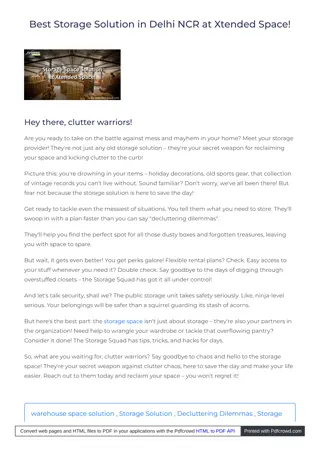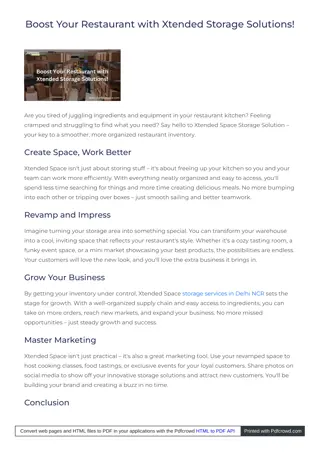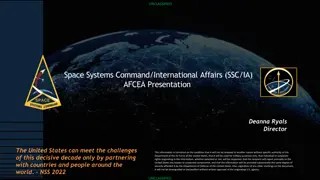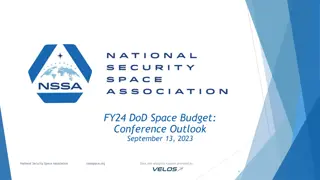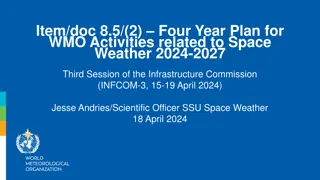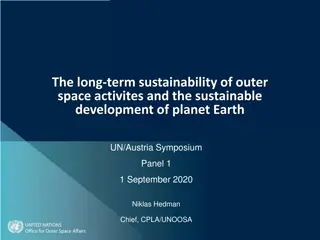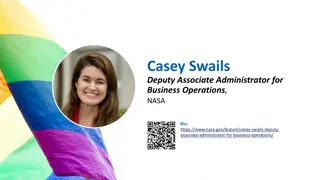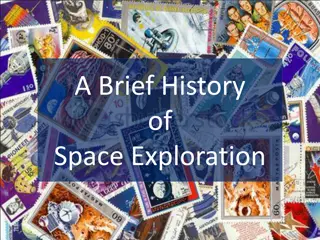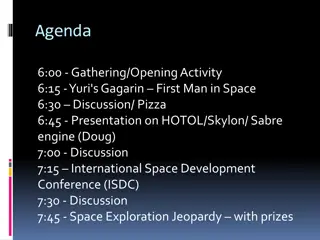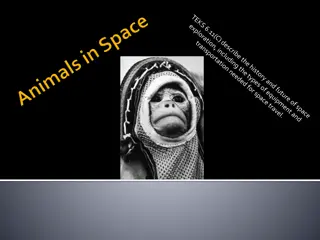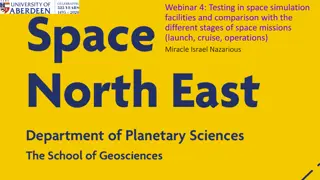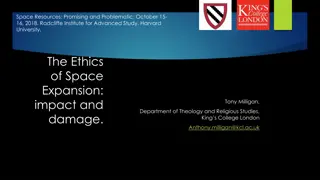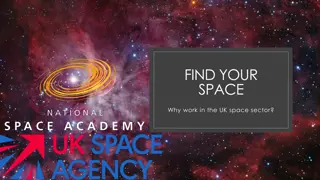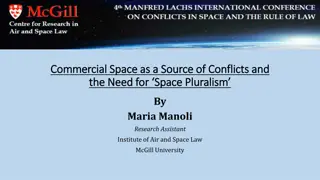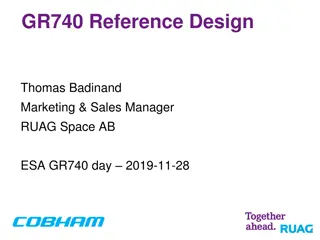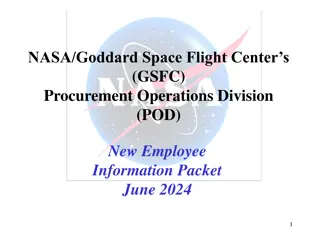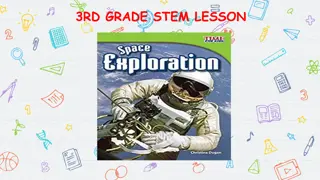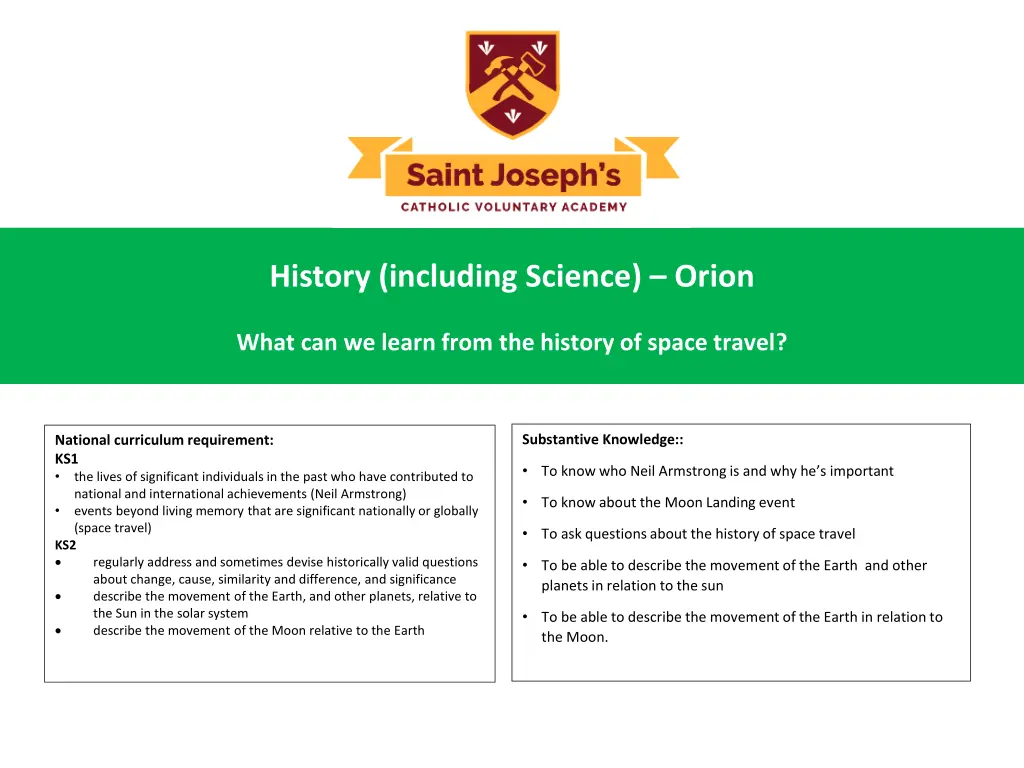
Exploring Space Travel History and Scientific Discoveries
Delve into the captivating history of space travel, from the significant contributions of individuals like Neil Armstrong to the Moon Landing event. Learn about the movements of planets in our solar system and develop a deep understanding of space exploration. Discover disciplinary knowledge in both science and history, unraveling concepts of continuity, change, cause, consequence, and more.
Download Presentation

Please find below an Image/Link to download the presentation.
The content on the website is provided AS IS for your information and personal use only. It may not be sold, licensed, or shared on other websites without obtaining consent from the author. If you encounter any issues during the download, it is possible that the publisher has removed the file from their server.
You are allowed to download the files provided on this website for personal or commercial use, subject to the condition that they are used lawfully. All files are the property of their respective owners.
The content on the website is provided AS IS for your information and personal use only. It may not be sold, licensed, or shared on other websites without obtaining consent from the author.
E N D
Presentation Transcript
History (including Science) Orion What can we learn from the history of space travel? Substantive Knowledge:: National curriculum requirement: KS1 the lives of significant individuals in the past who have contributed to national and international achievements (Neil Armstrong) events beyond living memory that are significant nationally or globally (space travel) KS2 regularly address and sometimes devise historically valid questions about change, cause, similarity and difference, and significance describe the movement of the Earth, and other planets, relative to the Sun in the solar system describe the movement of the Moon relative to the Earth To know who Neil Armstrong is and why he s important To know about the Moon Landing event To ask questions about the history of space travel To be able to describe the movement of the Earth and other planets in relation to the sun To be able to describe the movement of the Earth in relation to the Moon.
Long-term overview for History Orion History: Impact of historical event on modern day Science: Understanding the movements of planets in space What can we learn from the history of space travel? How many questions can we ask and discover about space travel? What do we know about the Moon landing event? What do we know about Neil Armstrong? What can we tell you about the movement of the Earth in relation to the sun? What can we tell you about the movement of the Earth in relations to the Moon? Disciplinary Knowledge Research (science) Research the planets in our solar system, including length of orbit Research (History) understand historical concepts such as continuity and change, cause and consequence, similarity, difference and significance, and use them to make connections, draw contrasts, analyse trends, frame historically-valid questions and create their own structured accounts, including written narratives and analyses
Orion Knowledge Organiser Subject: History Main Learning: History of Space Travel Key knowledge Vocabulary Is made of the eight planets that orbit our sun; it is also made of asteroids, moons, comets and lots more solar system Know about the history of space travel There are 8 planets in our solar system, they are Mercury, Venus, Earth, Mars, Jupiter, Saturn, Uranus and Neptune planet Know about Neil Armstrong and his impact on space travel Something spherical is like a sphere in being round, or more or less round, in three dimensions spherical Know about the Moon Landing event It is a slither of the moon that is lit up and can be seen and is less than half the moon crescent moon Demonstrate ability to ask questions to deepen understanding of space travel A gibbous moon occurs when the moon is three- quarters lit up gibbous moon Describe the movement of the Earth and other planets in relation to the sun This occurs when an astronomical object is temporarily obscured. A lunar eclipse happens when the Earth moves between the Sun and the Moon and blocking the Sun's rays from striking the Moon eclipse Describe the movement of the Earth in relation to the Moon Prior Knowledge 3
What do we know about the history of space? Resources/ Events: Trip to Space Centre Space toys Biography of Neil Armstrong Video of moon landing Paints Sand Cornflour Bubble wrap Pictures of planets/ Moon Landing

![Read⚡ebook✔[PDF] Linking the Space Shuttle and Space Stations: Early Docking Te](/thumb/21519/read-ebook-pdf-linking-the-space-shuttle-and-space-stations-early-docking-te.jpg)
![READ⚡[PDF]✔ Emerging Space Powers: The New Space Programs of Asia, the Middle Ea](/thumb/21554/read-pdf-emerging-space-powers-the-new-space-programs-of-asia-the-middle-ea.jpg)
